It looks like you're using an Ad Blocker.
Please white-list or disable AboveTopSecret.com in your ad-blocking tool.
Thank you.
Some features of ATS will be disabled while you continue to use an ad-blocker.
7
share:
Neanderthals Walked Into Frozen Britain 40,000 Years Earlier Than First Thought, Evidence Shows
New evidence suggests that Neanderthals were living in Britain at the start of the last ice age, 40,000 years earlier than previously thought.
Results from the testing of two ancient flint hand tools suggest that as soon as sea levels dropped, a 'land bridge' appeared across the English Channel, enabling the Neanderthals to make the journey by foot to Kent.
A University of Southampton archaeologist and Oxford Archaeology have found evidence that Neanderthals were living in Britain at the start of the last ice age, 40,000 years earlier than previously thought.
Commissioned by Oxford Archaeology, the University of Southampton's Dr Francis Wenban-Smith discovered two ancient flint hand tools at the M25 / A2 road junction at Dartford in Kent, during an excavation funded by the Highways Agency. The flints are waste flakes from the manufacture of unknown tools, which would almost certainly have mostly been used for cutting up dead animals. Tests on sediment burying the flints show they date from around 100,000 years ago, proving Neanderthals were living in Britain at this time. The country was previously assumed to have been uninhabited during this period.
"I couldn't believe my eyes when I received the test results. We know that Neanderthals inhabited Northern France at this time, but this new evidence suggests that as soon as sea levels dropped, and a 'land bridge' appeared across the English Channel, they made the journey by foot to Kent," says Francis.
[atsimg]http://files.abovetopsecret.com/images/member/f9654555eb9c.jpg[/atsimg]
Early pre-Neanderthals inhabited Britain before the last ice age, but were forced south by a previous glaciation about 200,000 year ago. When the climate warmed up again between 130,000 and 110,000 years ago, they couldn't get back because, similar to today, the Channel sea-level was raised, blocking their path. This discovery shows they returned to our shores much earlier than 60,000 years ago, as previous evidence suggested.
"The fieldwork uncovered a significant amount of activity at the Dartford site in the Bronze Age and Roman periods, but it is deeper trenches excavated through much older sediments which have yielded the most interesting results -- shedding light on a long period when there was assumed to have been an absence of early man from Britain," comments Oxford Archaeology Project Manager David Score.
One theory is that Neanderthals may have been attracted back to Kent by the flint-rich chalk downs visible from France. These supported herds of mammoth, rhino, horse and deer -- an important source of food in sub-arctic conditions. "These are people who had no real shelter -- no houses, not even caves, so we can only speculate that by the time they returned, they had developed physiologically to cope with the cold, as well as developing behavioural strategies such as planning winter stores and making good use of fire," says Dr Francis Wenban-Smith.
www.sciencedaily.com...
a reply to: sandri_90
Thanks for posting sandri, S and F for you.
I dont belive that the channel would posed any difficulty to the neanderthals, they were sailing to places out of site in the med, and inhabited Gorhams cave in Gibraltar, which is only accessible by sea.
You should PM member PeterVlar, he will have valuable input
Thanks for posting sandri, S and F for you.
I dont belive that the channel would posed any difficulty to the neanderthals, they were sailing to places out of site in the med, and inhabited Gorhams cave in Gibraltar, which is only accessible by sea.
You should PM member PeterVlar, he will have valuable input
a reply to: sandri_90
I also am beggining to think that neanderthal or closely descended modern human/ neanderthal hybrid people lived in britain much later than has been thought.
The creswellian cultures tools are, to my eye, more neanderthal than what other contemporary nearby modern humans were making,
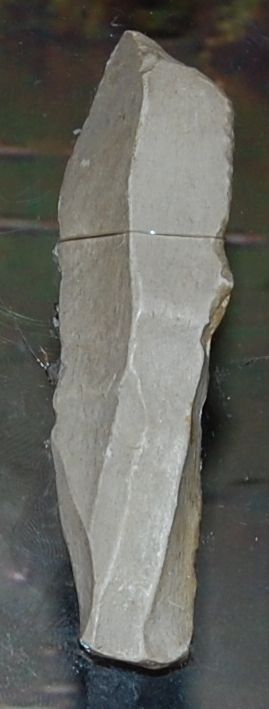
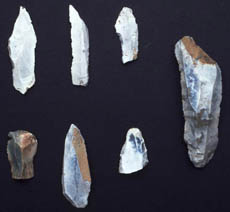
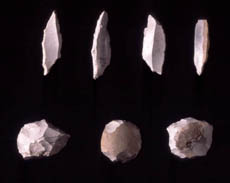
solutrean arrow heads and spear point
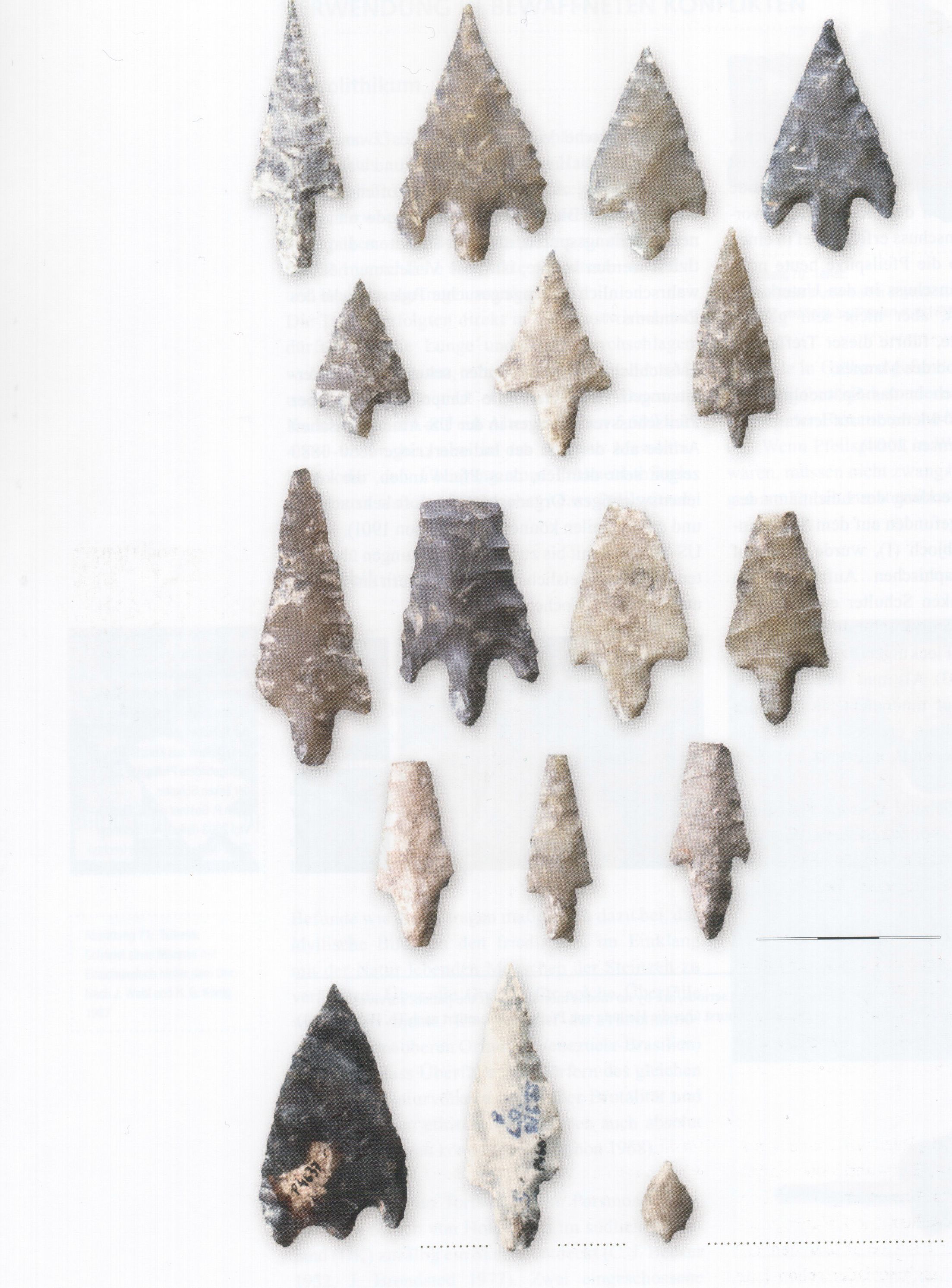
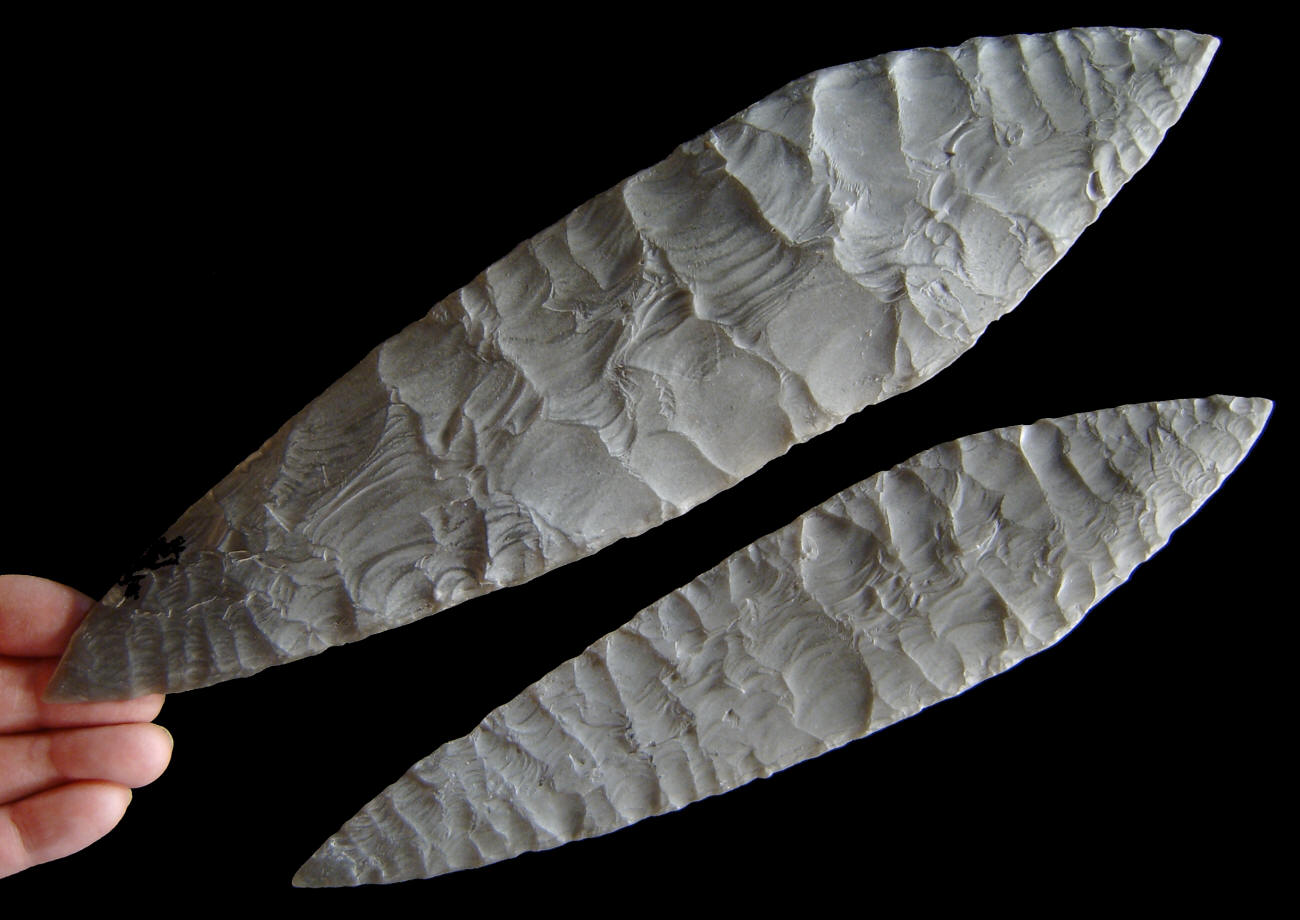
feddermesser spears
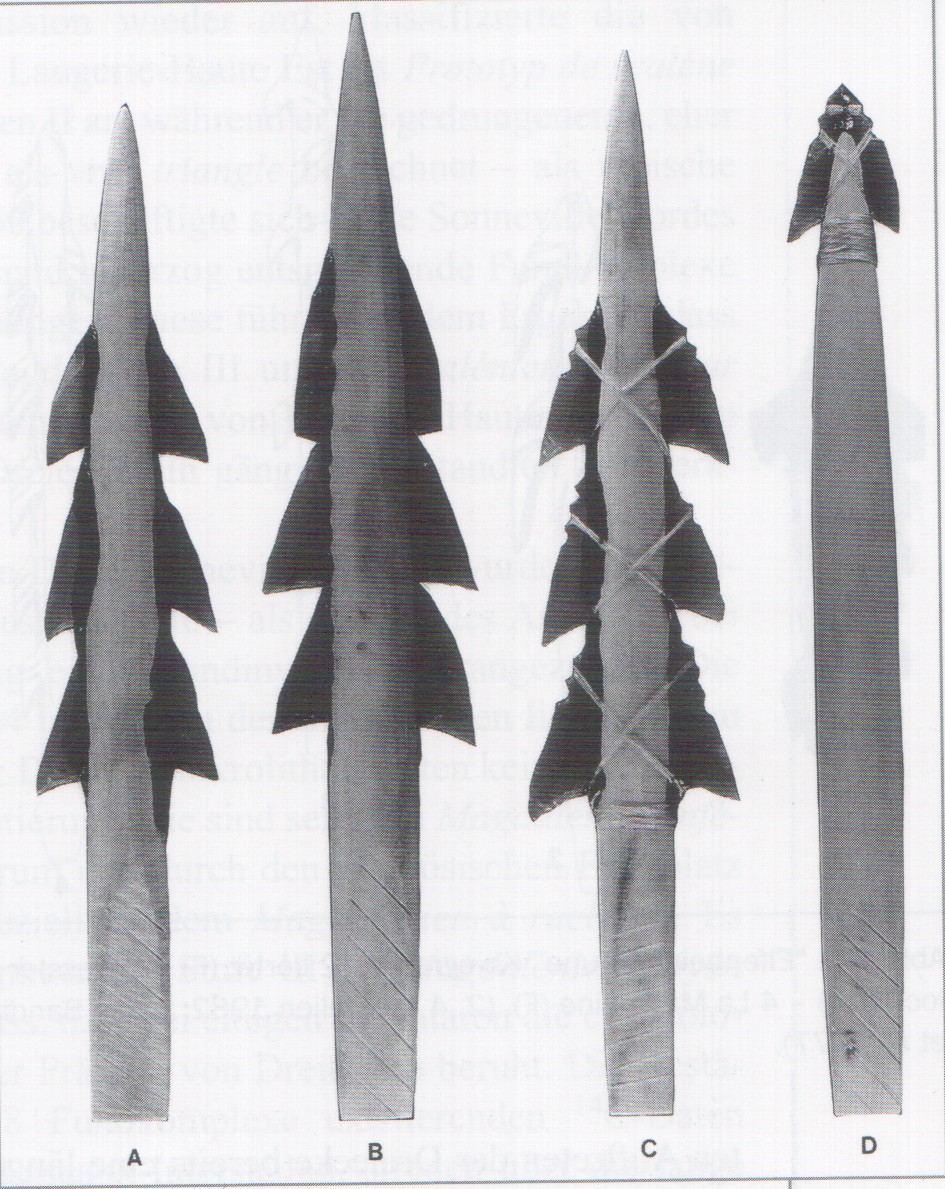
I also am beggining to think that neanderthal or closely descended modern human/ neanderthal hybrid people lived in britain much later than has been thought.
The creswellian cultures tools are, to my eye, more neanderthal than what other contemporary nearby modern humans were making,



solutrean arrow heads and spear point


feddermesser spears

new topics
-
DARPA Releases First Images Of Manta Ray Underwater Drone During In-Water Testing
Military Projects: 1 hours ago -
I'm back...sort of
Introductions: 1 hours ago -
October 7th: The Crumbling Facade of a Western Security Asset
Above Politics: 3 hours ago -
Echoes of Colonialism: The Struggle for Space and Speech in Academic Institutions
US Political Madness: 3 hours ago -
VIDEO INSIDE CIA: Project Manager Says Execs and Directors of CIA Withheld Information From Trump
US Political Madness: 4 hours ago -
Richard Tandy ELO R.I.P.
Music: 6 hours ago -
ICJ Did NOT Find There Was a Plausible Case That Israel Is Committing Genocide
World War Three: 8 hours ago -
The Pentagon is lying about UFOs
Aliens and UFOs: 8 hours ago -
Israel's plans for the West
Above Politics: 9 hours ago -
Who I am is me.
Introductions: 11 hours ago
top topics
-
White House considers welcoming some Palestinians from war-torn Gaza as refugees
US Political Madness: 12 hours ago, 10 flags -
ICJ Did NOT Find There Was a Plausible Case That Israel Is Committing Genocide
World War Three: 8 hours ago, 10 flags -
DARPA Releases First Images Of Manta Ray Underwater Drone During In-Water Testing
Military Projects: 1 hours ago, 5 flags -
The Pentagon is lying about UFOs
Aliens and UFOs: 8 hours ago, 3 flags -
Israel's plans for the West
Above Politics: 9 hours ago, 3 flags -
VIDEO INSIDE CIA: Project Manager Says Execs and Directors of CIA Withheld Information From Trump
US Political Madness: 4 hours ago, 3 flags -
Who I am is me.
Introductions: 11 hours ago, 2 flags -
I'm back...sort of
Introductions: 1 hours ago, 2 flags -
Richard Tandy ELO R.I.P.
Music: 6 hours ago, 2 flags -
October 7th: The Crumbling Facade of a Western Security Asset
Above Politics: 3 hours ago, 1 flags
7
